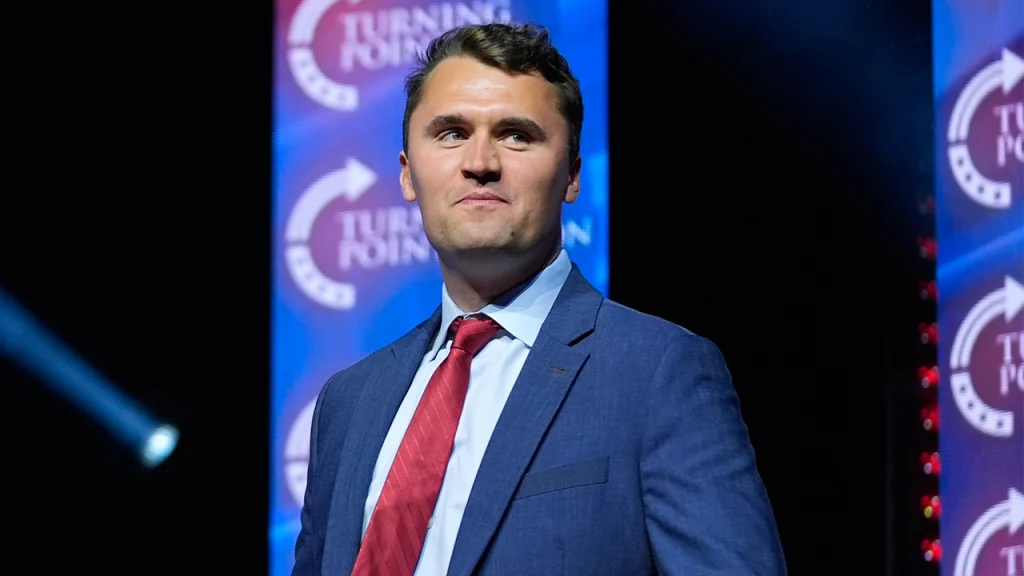ADL Retires “Glossary of Extremism and Hate” Following Controversy Over Turning Point USA Listing
In a dramatic turn of events, the Anti-Defamation League (ADL) has completely removed its “Glossary of Extremism and Hate” following intense backlash over its characterization of Turning Point USA (TPUSA). The controversy has taken on additional weight in light of the recent assassination of TPUSA co-founder Charlie Kirk, who was fatally shot while speaking at Utah Valley University just three weeks ago. The timing of this controversy has sparked heated debates about the responsibility and potential consequences of labeling political organizations as extremist groups, especially in today’s polarized political climate where such designations can have real-world implications.
The ADL’s now-removed listing for TPUSA appeared under their “Center of Extremism” category, describing the conservative organization as having connections to “a range of right-wing extremists” and generating “support from anti-Muslim bigots, alt-lite activists and some corners of the white supremacist alt-right.” Additionally, the ADL had compiled a list of controversial statements made by TPUSA members or speakers at their events dating back to 2015, and accused Charlie Kirk of using the movement to promote “Christian nationalism.” This characterization drew swift condemnation from prominent figures, including Elon Musk, who argued on his platform X that the “ADL hates Christians,” making it a “hate group” itself. Musk went further, suggesting that “using such false and defamatory labels about people and organizations encourages murder,” a particularly charged statement given the recent violence against Kirk.
The glossary’s removal represents a significant step for the ADL, as it contained over 1,000 entries built up over many years. In announcing the decision, the organization acknowledged that they are always “looking for how we can and should do things better” and admitted that a number of entries were “outdated,” though they did not specify which ones. The ADL framed the move as an opportunity to “explore new strategies and creative approaches to deliver our data and present our research more effectively,” emphasizing their commitment to “fighting antisemitism and hate in the most impactful ways possible.” The organization’s decision highlights the challenges of maintaining such databases in an increasingly contentious political environment, where designations of extremism can themselves become flashpoints for controversy.
Critics of the ADL had noted apparent inconsistencies in which groups were included in the glossary and which were omitted. While organizations like the Nation of Islam, the Proud Boys, and the Oath Keepers were listed alongside TPUSA and the “America First” movement, controversial groups like Antifa and Black Lives Matter were not included. This selectivity led to accusations of political bias from Republican lawmakers, including Rep. Anna Paulina Luna of Florida, who insisted that “‘America First’ is not hate speech” and that “Turning Point USA is not a hate group.” The ADL had included a disclaimer on the glossary’s homepage stating that “being included in this database does not mean that individuals or groups are engaging in illegal or violent conduct,” but rather that the organization had judged their views to be “extreme” – a qualification that did little to quell the growing outrage.
The controversy underscores broader questions about who gets to define extremism in American society and the potential real-world consequences of such designations. The tragic assassination of Charlie Kirk has added a sobering dimension to these debates, with some suggesting that labeling mainstream conservative organizations as extremist could potentially encourage violence against their members. Others defend the importance of monitoring and identifying groups that promote harmful ideologies, arguing that such work is essential for combating hate and preventing violence. The ADL, which has long positioned itself as an authority on extremism and hate groups, now finds itself at the center of this complex conversation, forced to reconsider its approach to categorizing and describing political movements.
As the ADL reconsiders its approach moving forward, the incident highlights the evolving nature of political discourse in America and the challenges faced by organizations attempting to navigate these turbulent waters. The removal of the entire glossary, rather than simply updating or removing specific entries, suggests a recognition that the task of categorizing extremism requires a more nuanced approach than perhaps was previously employed. For groups like TPUSA, the incident represents a victory in their ongoing effort to position themselves as mainstream conservative organizations rather than extremist groups. For the ADL, it presents an opportunity to reassess how they fulfill their mission of fighting hate while maintaining credibility across the political spectrum.
The controversy over the ADL’s glossary reflects broader tensions in American society about the boundaries of acceptable political discourse and the consequences of labeling. As political polarization continues to deepen, the task of defining extremism becomes increasingly fraught, with profound implications for our civic life and public safety. The ADL’s decision to retire its glossary represents not just a response to criticism, but perhaps an acknowledgment of these changing realities and the need for more sophisticated approaches to understanding and addressing extremism in all its forms. As we move forward, finding ways to combat genuine hate and extremism while respecting legitimate political differences remains one of the central challenges of our time – a challenge that the ADL, and indeed all of us, must continue to grapple with in good faith.


